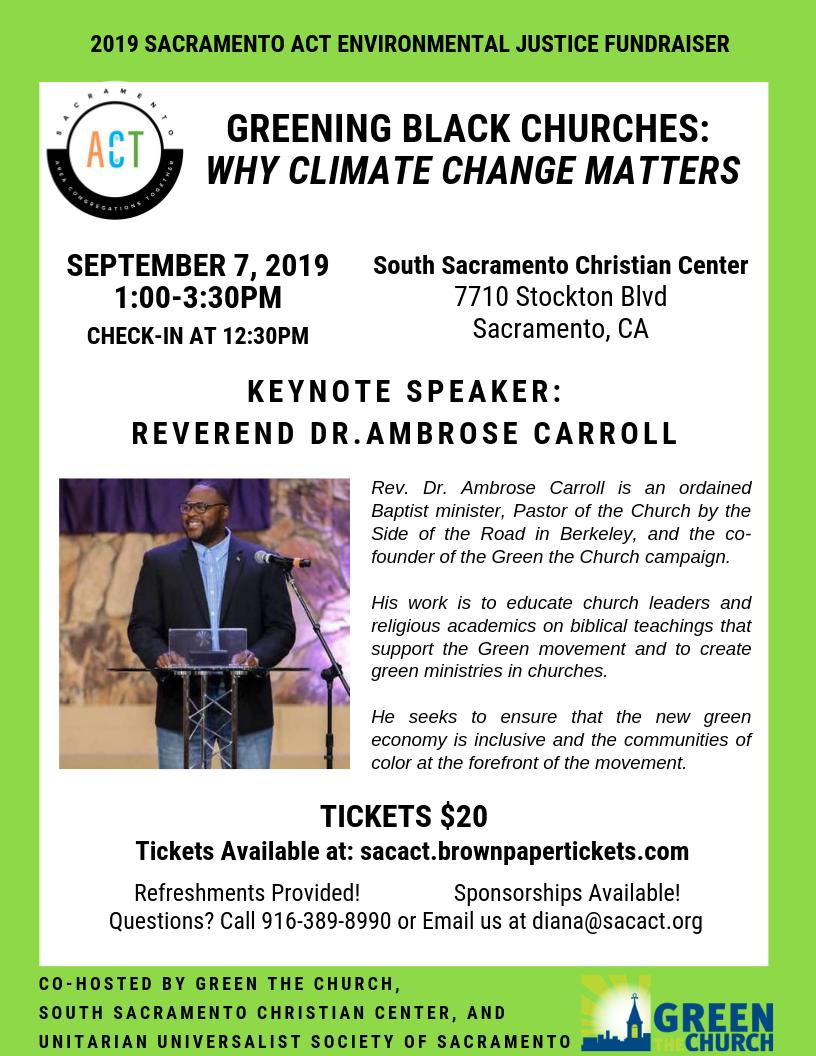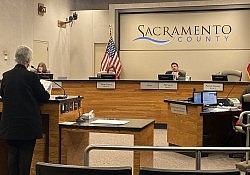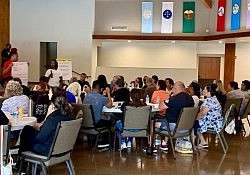Greening Black Churches: Why this Matters to White Congregations – Sept. 7th
Posted by Christine Bailey
Posted on August 8, 2019
The woman in the church fellowship hall looked at the colorful flyer advertising an upcoming event, “Greening the Black Church,” and quickly glanced past it and reached for another cup of coffee. “We are not a black church, she noted to a friend. It seems we’ve started advertising for everything now.”
The exchange happened in another community, but could happen in almost any predominantly white congregation in American. The call to “green the black church,” might seem like a rallying cry only for black communities, but indeed is also an invitation for all communities of faith to participate in expanding our sense of environmental justice and our capacity to address climate change. Communities of color are disproportionately affected by extreme weather events. Heat waves, hurricanes and rising oceans prove more devastating for poorer communities with fewer resources and which tend to be communities of color. In most climate change scenarios the impact on these communities will be catastrophic.
For congregations that care about economic justice, climate change, moving toward a green economy, greening the black church offers great hope, as well as tangible steps toward addressing systemic injustices and moving toward greater sustainability. Green The Black Church taps into the unmatched power of the African-American church as a moral leader and a force for social change — one with the potential to bring millions of new people into the climate movement. Polls show that African Americans consistently demonstrate the highest level of commitment to climate solutions. It will be imperative to harness that commitment — and engaging the church is one of the best ways we can do it.
Black churches — and the millions of voters they represent — could make the difference in whether we win or lose on climate. It’s not just about helping churches save energy (and money). Such engagement could bring new economic growth and stability to low income communities through access to green jobs and could have a ripple effect as an improved local economy would also begin to address food insecurity, health inequities, and indeed quality of life for black communities and ultimately for the nation and planet.
September 7, thanks to the SacACT Environmental Justice Committee, which started in our predominantly white UUSS congregation, the Rev. Dr. Ambrose Carroll, Senior Pastor of Berkeley’s, Church by the Side of the Road, and founder of Greening the Black Church, will be sharing the vision of this transformative work. His presentation will include ways faith communities, of all types, can support this important justice initiative that could breathe new life into the climate justice movement and restore hope for a livable and sustainable future. Why should you care? Why will you want to support this work? There is not a black future or a white future, there is only our shared future. What sacred work for our time.
Thank you to Sacramento ACT Environmental Justice Committee Member Rev. Dr. Mary Westfall for this beautiful and inspiring prose.
To attend, please purchase tickets at sacact.brownpapertickets.com .
Or, see Linda Buckley or Rich Howard after Sunday services to buy tickets or volunteer to help on September 7.
Contact for more information.
There are 2 Comments on this post.
Feel free to leave your own comment or question about this post.
More Environmental Justice Committee Updates
1/22/20
By Christine Bailey
County EJ Survey Extended to January 30 @ Noon
–
What are your priorities for Environmental Justice next year? Take the survey: https://www.surveymonkey.com/r/DQ7BS2C December 17, …
2 Responses to “Greening Black Churches: Why this Matters to White Congregations – Sept. 7th”
Sorry, the comment form is closed at this time.




So glad it is helpful to you!
I hope to meet you on September 29!
My husband & I attend Northwoods UU Church in The Woodlands, TX. We were thinking of visiting UU Society of Sacramento on Sept. 29th & saw this post on your website. The issue is eloquently stated & you have given us some ideas of how I can make a difference where we live.